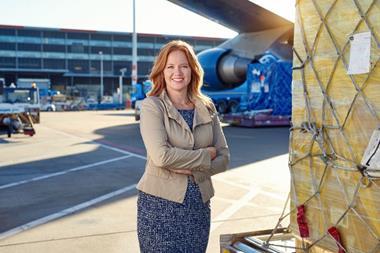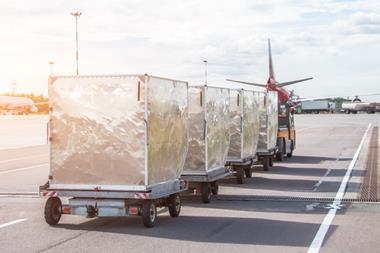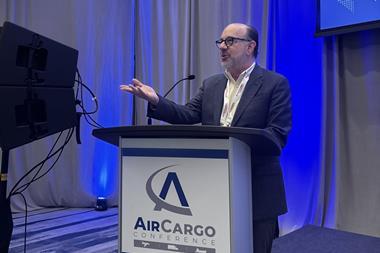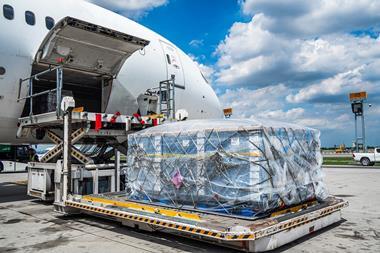
Air cargo association Tiaca is expecting air cargo demand to grow by 5% in 2025, but has warned of an “elevating risk” to its growth expectations.
Speaking during a webinar, Tiaca director general Glyn Hughes said that the growth projection was based on economic stability being at its highest level for several years.
He pointed out that the International Monetary Fund (IMF) is expecting global GDP to increase by 3.3% this year. Meanwhile, e-commerce demand continues to grow.
"Inflation continues to come down and under control and energy costs are also coming down, which is supporting more global production,” he said.
He added: “The affluent middle class is growing constantly which is adding fuel to that need for international trade.”
On the supply side, cargo load factors are expected to remain elevated due to capacity limitations, which should support stronger yields.
He pointed out that load factors out of Asia Pacific - according to data firm Xeneta - are around 80%, which means aircraft are operating pretty much at full capacity.
Trouble ahead?
However, it won't all be plain sailing for air cargo in 2025. Hughes said that there was a "mild level of risk" to its growth projection "but it is starting to elevate".
He said that because of political and policy changes, there is an elevated risk attached to expectations of growth in e-commerce.
Meanwhile, a recent report from business research group The Conference Board shows that US consumer confidence is declining because of expectations for rising inflation in part related to the tariffs introduced by president Donald Trump and how that will impact finances.
Tariffs and trade barriers are also resulting in extra complexity, Hughes said.
"We do see an elevated risk to [border complexity] and increased demands to file data, which translates to complexity in the system and potential obstacles and blockages for fast and effective cargo clearance," he said.
"The situation is very fluid but the thing that concerns us more than anything else is the fact that trade and tariffs are being politicised and weaponised in the political forum. We believe that international trade and aggregation and integration of economies is a way for global prosperity and global prosperity is the best way to secure peace."
Modal shift
Another risk to air cargo growth is a potential modal shift back to ocean transport if containerships switch back to the Red Sea and Suez Canal from the longer route around Africa.
The ships initially began diverting around Africa in response to missile attacks on commercial shipping by Yemen-based Houthi Rebels in response to the Israel-Hamas war.
However, earlier this year the Houthi Rebels paused their attacks following the start of a ceasefire between Hamas and Israel.
Hughes said there was still a lot of risk attached to switching vessels back from the Cape of Good Hope to the Suez Canal.
"The Red Sea disruption situation is not over," he said. "The ceasefire is not an end to the hostilities in Gaza and the Houthi rebels have indicated, depending on how that situation resolves itself, that if there isn’t a lasting peace then they will resume their targetted attacks.
Meanwhile, Western aircraft were unlikely to resume flying over Russia any time soon even as peace talks regarding the war in Ukraine look set to get underway.
"We know the situation in Ukraine, even if a peace deal is reached, that doesn’t automatically translate into the opening up of Russian airspace because those restrictions were imposed as a retaliatory measure to the sanctions imposed by certain states. So there will be a number of measures that need to take place before we can anticipate seeing completely re-opened airspace."
Flexible approach
To cope with the uncertainties, Hughes said that airlines would need to be flexible with their fleets.
He pointed to the recent Lunar New Year holiday in Asia, which had seen freighter operators switch aircraft from China and Hong Kong to Africa to cater for Valentine's Day flower demand out of the continent.
"We might see that throughout the course of the year," he said. "Where we might see tariffs or other obstacle events taking place, airlines will be reactive and move their aircraft."
One of the big developments in recent weeks was the US decision to withdraw the de minimis exemption for imports from China, only to temporarily restore it a few days later when it became clear that Customs and Border Protection (CBP) did not have the systems and processes necessary to process the 4m e-commerce packages it handles from China each day.
Hughes said that it was initially expected that the de minimis ban would be restored within a month, but it was more likely to be two to three months before CBP can "look at implementing the appropriate systems".
He added that there was also a proposed rule-making in the works that would require extra shipment information to be submitted for all de minimis shipments regardless of origin.
"That would add significant cost and complexity," he said. "A filing for an e-commerce shipment that is worth $5 could be another $5 or $10 in terms of filing fees and administrative costs so that could have a very serious impact on inbound e-commerce activity.
"It is still too early to say because the notice of proposed rule-making may make some concessions for what we call manifest filing or aggregated filings, so it wouldn’t necessarily be on a shipment by shipment basis but could perhaps be a collective of some definition."
Hughes said that Tiaca along with other associations have submitted feedback to the proposed rule-making.


















